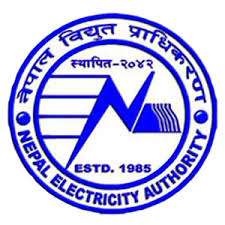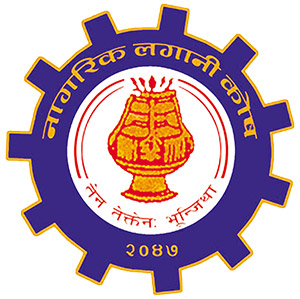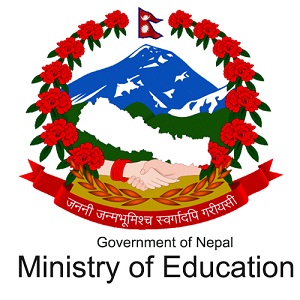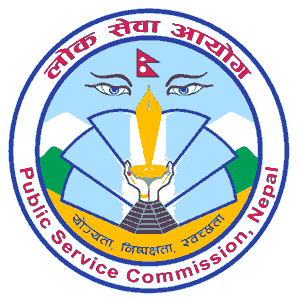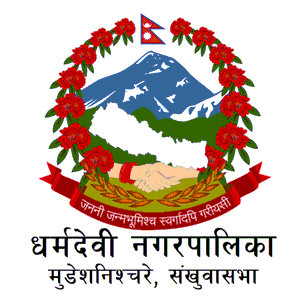Overview
Rastriya Bhumi Aayog (National Land Commission - राष्ट्रिय भूमी आयोग): The Government of Nepal, using the authority under sub-section (3) of section 52 (a) and sub-section (6) of section 52 (b) of the Land Act, 2021, provides land to the landless Dalits, landless squatters and manages the unsettled residents of the national land. Commission has been formed. National Land Commission Establishment Order 2078 has been published in the Nepal Gazette on 2078-05-25.
According to the formation order, there is a provision to form a 9-member National Land Commission including the chairman and vice-chairman. In order to support, coordinate and facilitate the commission's work, the district committee has been arranged at the district level based on the need and justification. The district committee consists of 9 officials including the chairman.
-Notice.png)
Land is a natural resource. It is the main source of gas, shelter, cotton and meeting the basic needs of human beings. The land is the main means of production for Nepal, an agricultural country. It is the main site of most of the daily activities of human life and livelihood, as well as the basis of cultural identity and prosperity, as well as the production of various raw materials for agriculture and food production, industry, and factories. Therefore, the land is an integral part of human life.
In the Constitution of Nepal, the right to food sovereignty, the right to housing, ending dual ownership of land, and taking into account the interests of farmers, scientific land reform, proper use of land based on productivity, nature and environmental balance, managing unorganized settlements and developing planned and orderly settlements, each Access to land for farmers for agricultural work, provide land once to landless Dalits, housing arrangements for homeless Dalits, ensure the rights of farmers and landless squatters over land, identify free workers, Kamhalaharis, Harwa, Charwa, Halia, landless, squatters and provide them with houses, land and A constitutional arrangement has been made to provide arable land for livelihood. Necessary amendments have been made to the Land Act, 2021 to implement it.
In order to implement the rights and rights according to the constitution and legal system of Nepal, to ensure the access and rights of landless Dalits, landless squatters, unorganized residents, and farmers through equitable distribution of land, scientific and maximum use of available land based on the Land Use Act, multi-dimensional management of land and land administration. It is the responsibility of the Province to maintain good governance with easy and simple access to the people.
For the purpose of providing land to landless Dalits, landless squatters, and managing unsettled residents, in accordance with sub-section (3) and sub-section (6) of Section 52B of the Land Act, 2021, the Government of Nepal established on August 25, 2078, The National Land Commission was formed by issuing an order.
Vision: A food sovereign, egalitarian, advanced, and prosperous Nepal with access and rights to housing and land for the common Nepali citizens.
Goal: To contribute to the end of landlessness in the country by establishing access to and ownership of housing and land for landless Dalits, landless squatters, and unorganized residents, contributing to the establishment of a people-oriented and just land system.
Purpose:
1) Identification, verification, and documentation of landless Dalits, landless squatters, and unorganized residents.
2) To end landlessness and land-based exploitation and discrimination in the country by establishing necessary action plans, criteria, procedures, schedules, and systems by establishing access and rights to housing and land for landless Dalits, landless squatters, and unorganized residents.
3) To provide land for agriculture with ownership to landless Dalits, landless squatters, and unorganized residents involved in agriculture. Establishing land as a means of production and supporting the upliftment of the standard of living of farmers who have access to and ownership of land by making scientific and maximum use of available land.
4) Planned relocation of actual landless Dalits and landless squatters living in hazardous or law-prohibited locations.
5) Completing the unfinished tasks of the past commissions and committees by making necessary procedures.
6) To make necessary contact, coordinate, and cooperation with the local level, provincial government, and Nepal government while carrying out the tasks of the commission.
7) Contribute to the long-term solution of the multifaceted problems related to land through the work, duties, and rights mentioned in the commission order as well as other tasks specified by the Government of Nepal.
Value Recognition
- Fairness
- Transparency
- Accountability
- Coordination and cooperation
- People-oriented, honest, and frugal performance
- Inclusive and participatory democratic practice
- Social Justice and Productivity Enhancement
Functions, Duties and Powers of the Commission
(a) To determine the basis and criteria for identification and verification of landless Dalits, landless squatters, and unorganized dwellers.
(b) Preparing and approving necessary procedures and frameworks for the collection of landless Dalits, landless squatters, and unorganized dwellers from the local level.
(c) Identification, data collection, and verification of landless Dalits, landless squatters, and unorganized residents at the local level.
(d) Related goods. In coordination with the office, prepare or arrange for the surveying of the land by the concerned surveyor's office.
(e) To analyze the data obtained from the local level and develop the necessary system to classify the land of unorganized residents based on the same system.
(f) Collecting fees according to the law for providing land to unorganized residents.
(g) Section 52B of the Act. To determine or arrange for the coordination of the provincial government and the local level regarding whether or not the land as per sub-section (4) of
(h) To provide land to landless Dalits, landless slum dwellers accordingly after receiving the data related to identification and verification of landless Dalits, landless squatters, and unorganized dwellers from the local level. and to initiate action procedures to manage unruly residents.
(i) Making necessary decisions regarding providing land to landless Dalits, and landless Sukumbasi through collective housing or land development in urban areas based on local characteristics.
(j) To provide land to landless Dalits, landless squatters and to make necessary decisions regarding the management of unsettled residents subject to this order and other prevailing laws.
(k) To request documents from any agency on matters related to the scope of work, to understand people, to obtain documents, to carry out on-site surveys or to arrange them.
(l) To provide the land that is held in excess of the limit to the landless Dalits, landless Sukumvasi.
(m) To do other work prescribed by the Government of Nepal.
Download:
National Land Commission Formation First Amendment Order, 2078.Pdf
National Land Commission formation order (including the first amendment), 2078.Pdf
Contact Details:
Rastriya Bhumi Aayog (National Land Commission)
Tahachal, Kathmandu, Nepal
Phone: +977-1-5312936, +977-1-5313932
Email: bhumiaayog@gmail.com / info@nlc.gov.np
Website: www.nlc.gov.np


